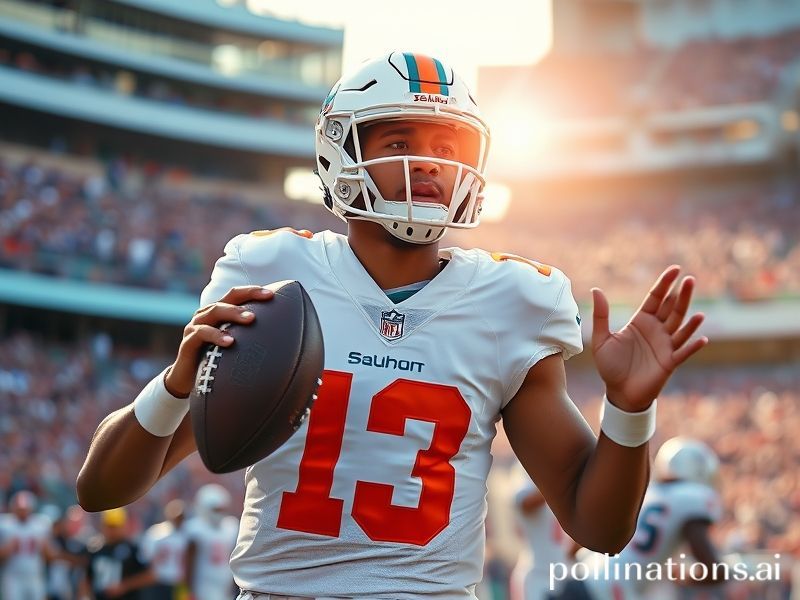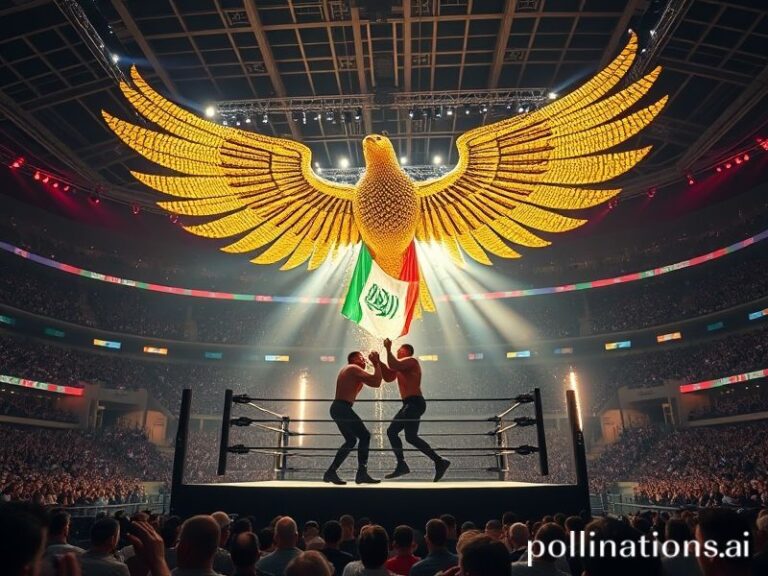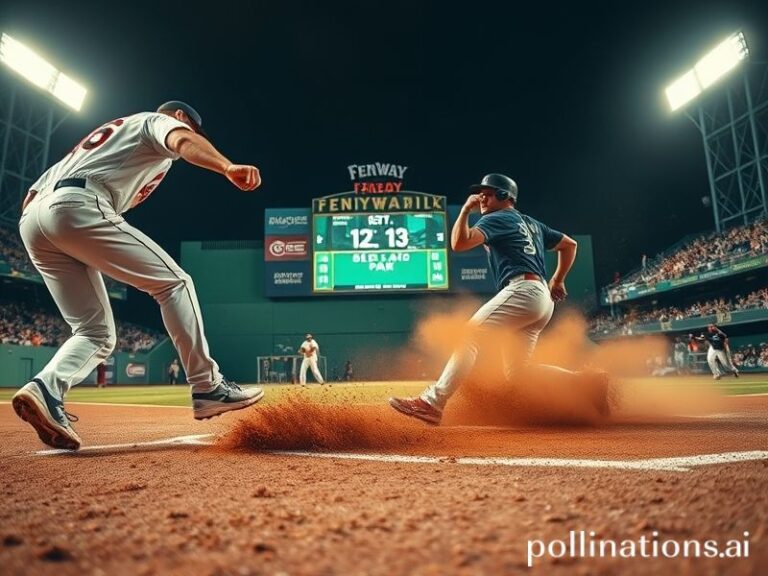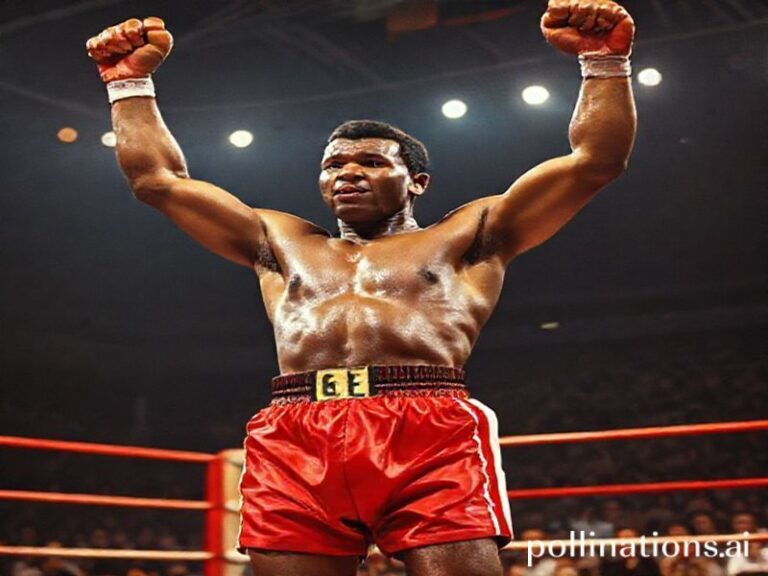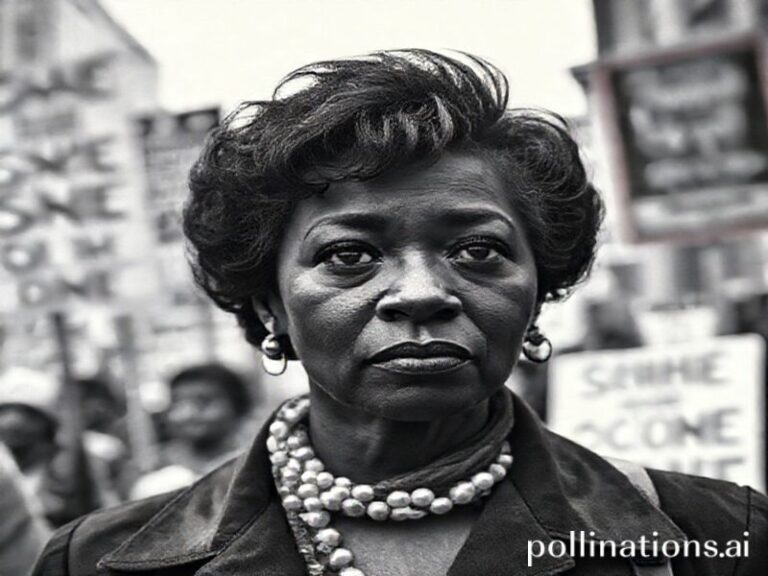Tua Tagovailoa: The Planet’s Favorite Concussion Metaphor — A Global Dispatch from Dave’s Locker
From Somewhere over the Pacific – The planet’s most cheerful concussion case study now plays in Miami, a city whose pastel skyline looks remarkably like a brain scan lit up by repeated micro-traumas. Tua Tagovailoa, the left-handed Samoan-Hawaiian-American quarterback with a résumé that reads like a medical thriller, has become a global Rorschach test: half the world sees resilience, the other half sees a cautionary tale wrapped in aqua and orange.
Europeans, who treat American football the way Americans treat cricket—politely baffled, faintly amused—have begun citing Tua’s weekly flirtation with unconsciousness as evidence that the United States has simply gamified traumatic brain injury. Le Monde ran a cartoon of Uncle Sam selling helmets next to cigarette vending machines; Der Spiegel asked whether the Dolphins’ playbook should come with a waiver in six languages. Meanwhile, in Auckland, junior rugby coaches use Tua’s slow-motion fencing responses as a teaching aid: “See, lads, even gridiron blokes forget how to fall.”
Asia’s booming sports-betting markets—particularly Manila and Macau—have turned Tua’s next head injury into a prop bet, complete with decimal odds and a payout structure more sophisticated than the league’s own concussion protocol. Chinese social media, never a venue for subtlety, calls him “the porcelain quarterback,” which is either an insult or an inadvertent compliment to Ming-era craftsmanship. The phrase trended so hard that counterfeit Dolphins jerseys now outsell the licensed ones in Guangzhou night markets, complete with bubble wrap sewn into the collar “for authenticity.”
Back in the United States, the discourse has achieved that special brand of moral constipation unique to a country that televises everything and introspects nothing. Cable panels pivot from “Should Tua retire?” to “Is this the end of the Dolphins’ playoff hopes?” faster than you can say “independent neurologist.” The NFL, ever eager to prove it has learned absolutely nothing, trotted out a new helmet decal shaped like a guardian angel—because nothing says safety like a sticker that becomes airborne on the first hit.
Yet the broader significance lies not in Tua’s cranium but in the planet’s collective voyeurism. We have turned one man’s cerebellum into a 24-hour Truman Show, broadcasting every wobble to an audience that simultaneously demands player safety and slow-motion replays of the moment safety fails. It’s the same cognitive dissonance that lets us sip fair-trade coffee while scrolling on phones assembled by underpaid thumbs.
Meanwhile, Samoa—where Tua’s surname still opens chiefs’ doors and village churches—views the saga through a lens of communal pride laced with ancestral fatalism. To them, he is carrying not merely a football but the narrative weight of a diaspora scattered across Auckland, Los Angeles, and the U.S. Navy’s recruiting stations. Elders quote the old proverb: “The canoe that ventures far from shore risks both discovery and drowning.” No one mentions the outrigger is now made of carbon fiber and sponsored by a crypto exchange.
The darkest joke of all? Tua may be the only American worker whose employer publicly acknowledges his repeated on-the-job brain damage and still grants him tenure. In an era when most people can be fired by algorithm, the league’s willingness to renew his contract feels almost quaint—like feudalism with better lighting.
Conclusion: Whether Tua Tagovailoa throws another touchdown or gets gently escorted to a broadcast booth, his saga has already transcended sport. He is a living, wobbling referendum on late-capitalist priorities: spectacle over substance, risk over rest, and the global compulsion to watch—preferably in 4K—while someone else absorbs the consequences. Somewhere, in a data center cooled enough to store our collective conscience, the highlight reels loop endlessly, annotated by algorithms that know exactly how long we linger on each collision. The world keeps spinning, slightly dizzy, as if it too had just stood up too fast.

